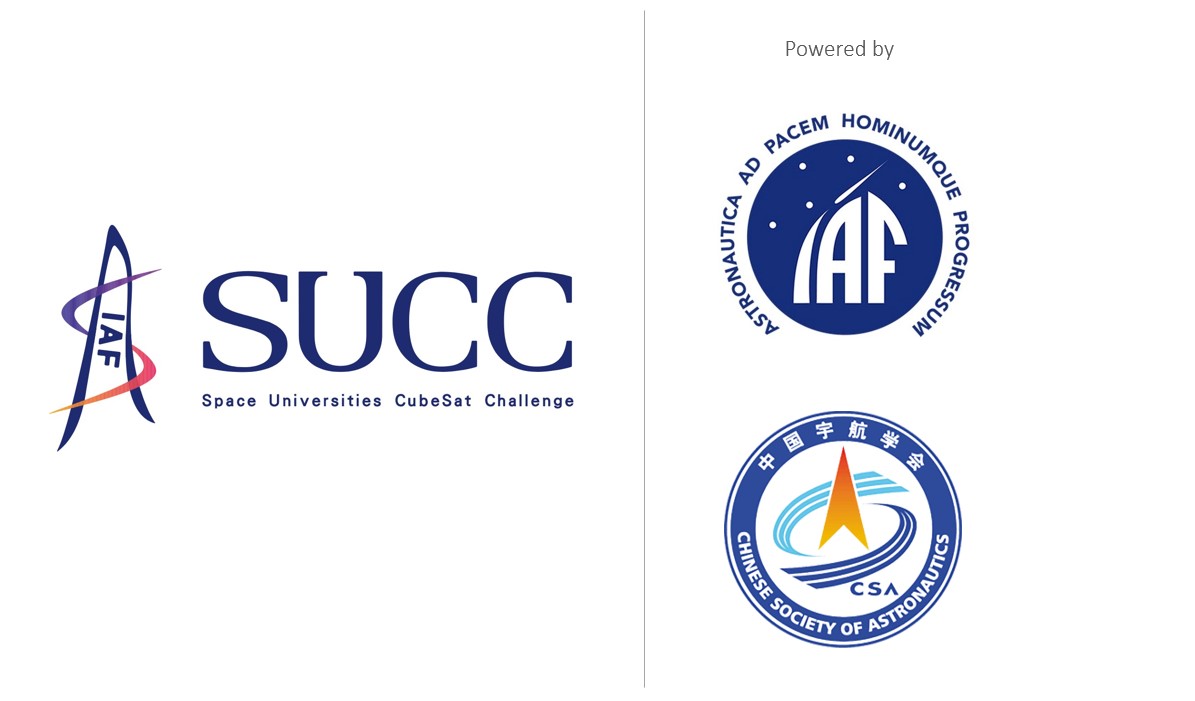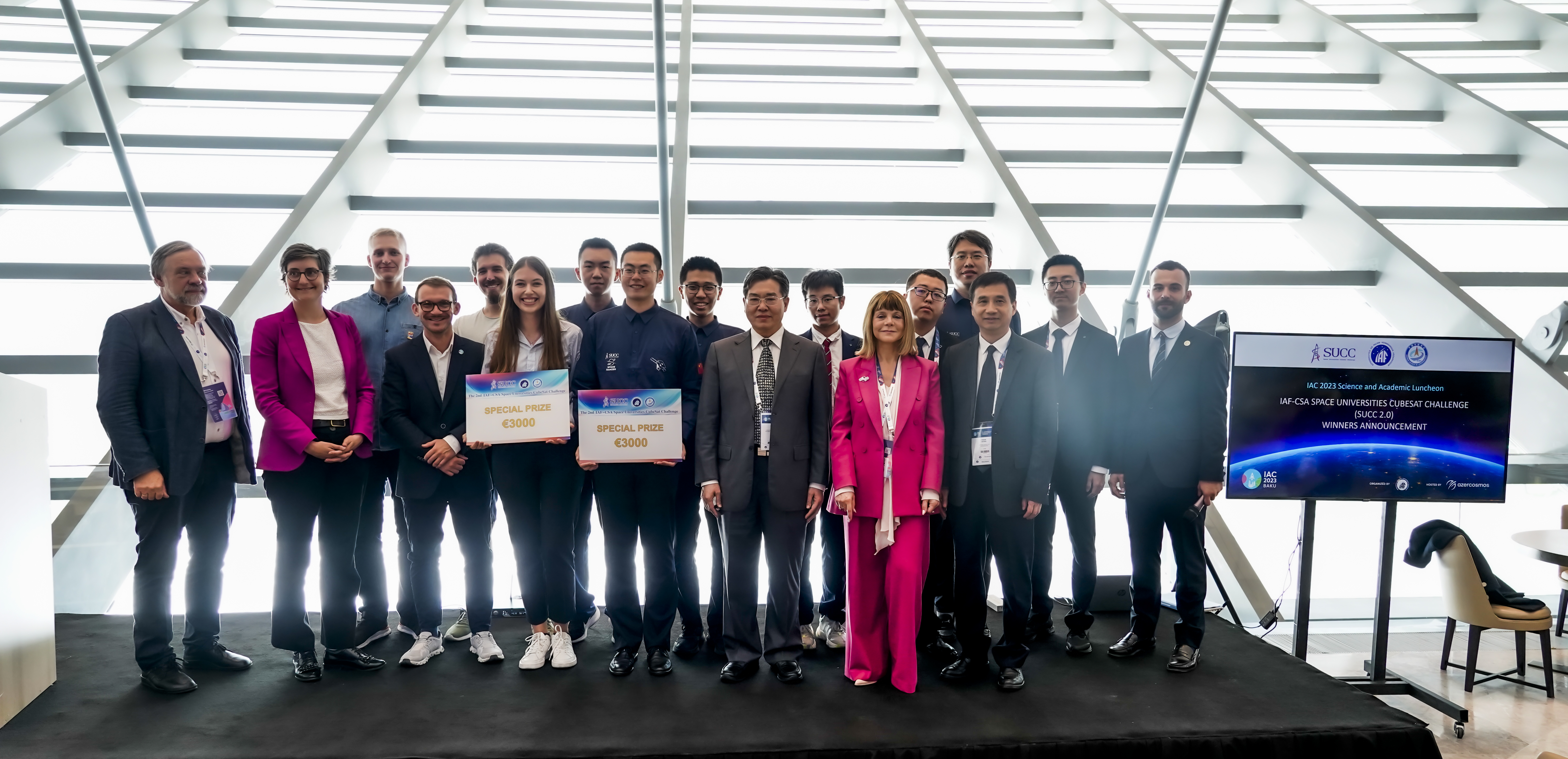IAF-CSA Space Universities CubeSat Challenge 2.0

IAF-CSA Space Universities CubeSat Challenge 2.0. “CubeSat, a platform for new Technology Verification and International Cooperation!”

The International Astronautical Federation (IAF) and its Space University Administrative Committee (SUAC) in cooperation with the Chinese Society of Astronautics (CSA) held the second edition of the Space Universities CubeSat Challenge (SUCC 2.0), a competition designed to foster the emerging space talents and the innovative thinking of university student teams through the selection of CubeSats for free launch opportunities aboard a Chinese space launcher.
The selection of received applications was conducted in three stages throughout August-September 2023:
- Selection of the International candidate winner project carried out virtually by a Working Group of the IAF Space Universities Administrative Committee (SUAC);
- Selection of the Chinese candidate winner project carried out by the Chinese authorities in Beihang University, Beijing, China;
- Selection of final candidates carried out by the SUCC 2.0 Judging Committee.
Initially conceived to offer a single free launch to one winner, SUCC 2.0 underwent a revision of its conditions. Driven by the spirit of international cooperation and following a cooperative approach after observing the remarkable innovation and technology readiness implied in the selected projects, the International Astronautical Federation and the Chinese Society of Astronautics, along with International Cooperation Center of China Aerospace (ICCCA) reviewed the terms of the Competition and jointly agreed to designate two student teams as final winners and to offer two complimentary launches aboard a Chinese launcher.
The final winners are:
- EPFL Spacecraft Team - École Polytechnique Fédérale de Lausanne (EPFL)- with their CHESS Pathfinder 1 Mission, a 3U CubeSat dedicated to collection of scientific data in space.
- Space Ranger Team - Beihang University - with their 3U Space Ranger CubeSat designed to monitor space debris in Low Earth Orbit (LEO).
Representatives of both student teams attended the 74th International Astronautical Congress, to present their projects and be awarded as winners of the SUCC 2.0 Competition during the IAC Science and Academic Day 2023.